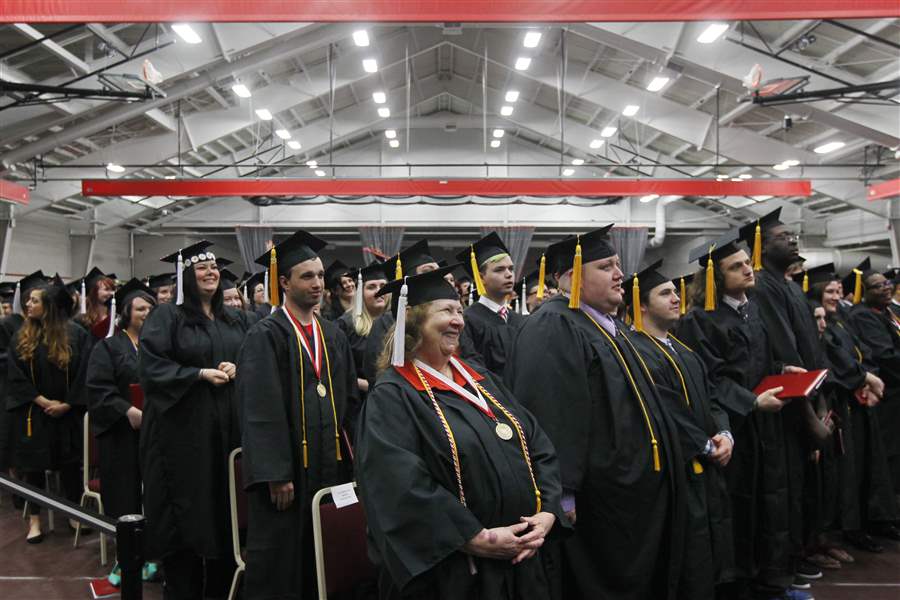
EDITORIAL
Federalism and free tuition
11/22/2017

Class Representative Helen Dilworth, 68, of Sylvania, smiled with other students at last year's graduation at Owens Community College in Perrysburg.
The Blade/Katie Rausch
Buy This Image
Democratic gubernatorial candidate Nan Whaley has called for free community college education in Ohio — funded by taxpayer borrowing. It’s a nice sounding idea, but a bad one.
There is no reason college should be free, for all or anyone. No one has a “right” to a free education. And what people get for free they tend to value little, or not at all.
But if community college is to be made more widely available, and accessible to the working poor, single mothers, and people retraining after being downsized, it should be modeled on the Tennessee and Chicago community college programs.
The Tennessee and Chicago programs, which are free, build in close monitoring of student progress, careful alignment of courses to transfer and job requirements, clear and coherent programs of study, and help for students to make better choices about what to study.
Liberals and conservatives can agree that community colleges merit their support. The conservative principle of federalism, or devolving power to the states and localities to the greatest extent possible, applies to community colleges. A unified national program would simply be too rigid and bureaucratic. One size does not fit all.
But, government-subsidized tuition, and most community colleges are subsidized to a greater or lesser extent, is generally considered a progressive idea — it makes education available to those who lack money. And education is the single best tool we can give the un- and under employed.
Community colleges should not be free. But they should be affordable, for they are one of our most effective anti-poverty program.